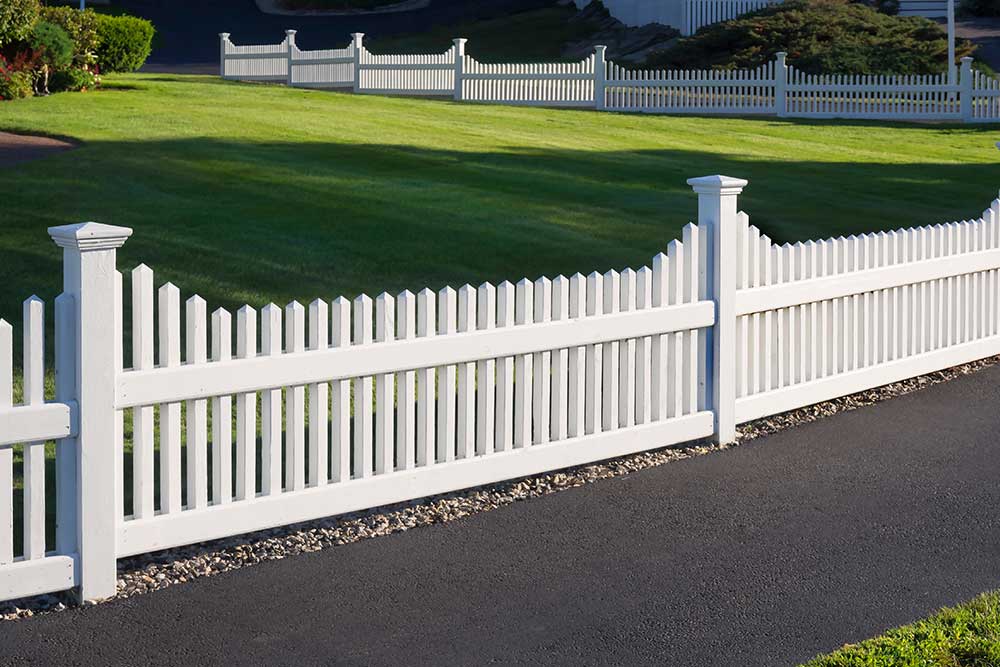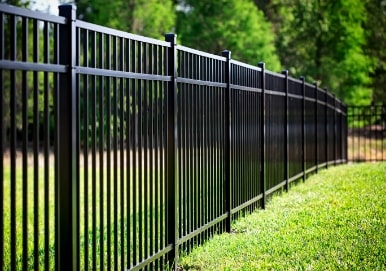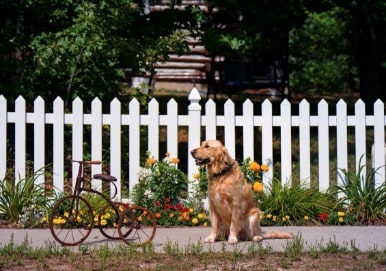Farm fence installation is an important step in securing and organizing your property. No matter if you’re protecting livestock, creating boundaries for crops, or enhancing the aesthetic of your farm, the right fence is important and should be designed with care.
At Good Neighbor Fence, we understand the unique needs of farm owners in Richmond, VA. We’re here to help you through the process with the best practices for a successful farm fence installation.

Choose the Right Type of Fence for Your Farm
The first step in farm fence installation is choosing the appropriate type of fence for your needs. Different types of fences serve various purposes, such as keeping livestock in or out, marking property lines, or creating a visual barrier. Some popular farm fence options include:
- Wood Fences: Ideal for aesthetic purposes or for creating secure boundaries for horses and other livestock.
- Vinyl Fences: Low-maintenance and durable, vinyl fences are great for keeping animals in place while maintaining a clean, professional look.
- Wire Fences: A cost-effective option for fencing large areas, wire fences are commonly used for cattle and other animals that require less visual confinement.
Each material has its benefits, so understanding your needs will help you choose the best type of fence for your farm.
Measure Your Property Correctly
Accurate measurements play a significant role in a successful farm fence installation. Before starting the installation process, it’s vital to measure the perimeter of the area you wish to enclose or section off. This will help determine how much material you’ll need and guide your decisions on fence height, style, and spacing. Start by measuring the length of your property line or the designated area where the fence will be installed. For accuracy, it is recommended to use a tape measure or laser measuring tool.
If your property has irregular shapes, break it down into smaller sections for easier measurement. Don’t forget to account for any gates or access points that will be part of the fence layout. This will allow you to calculate how many gate posts are needed and find out if your materials are sufficient.
It’s also important to consider the terrain of your land. If you’re working with sloped ground, you may need to adjust your fence design accordingly. A fence on uneven ground requires extra planning to avoid gaps that animals could potentially slip through or escape from.
Lastly, take time to check local regulations or consult with neighbors regarding property lines to avoid any disputes once the fence is installed. Properly measured areas reduce the risk of issues and can save you time and money down the line.
Prepare the Ground for Fence Installation
Proper ground preparation is vital for the longevity and stability of your fence. Clear the area of debris, rocks, and any obstacles that may interfere with the installation process. If the soil is particularly soft or unstable, you may need to reinforce it by digging deeper holes or adding a stabilizing material like gravel.
Additionally, make sure to check the ground for any potential underground utilities. Mark the locations of water pipes, power lines, or gas lines to avoid damage during installation.
Install Fence Posts Securely
The strength of your fence lies in the fence posts. Make sure that they are properly installed to withstand weather conditions, animal pressure, and time. Fence posts should be spaced appropriately, generally 6 to 8 feet apart, depending on the material of the fence and the size of the animals you’re containing.
Dig the holes deep enough to allow the posts to be securely set in the ground – typically at least one-third of the post’s total length. Using concrete or compacted gravel around the posts can also help keep them stable and prevent shifting over time.
Maintain Your Fence for Long-Term Durability
Farm fences endure harsh weather conditions, animals rubbing against them, and general wear and tear. Regular maintenance is key to extending the life of your fence. Check for any damage, such as broken rails or loose wires, and make repairs promptly. If your fence is wooden, staining or sealing it every few years will help protect it from the elements.
If you’re using wire or vinyl fences, inspect them for any rust, corrosion, or sagging. Keeping your fence in good condition will allow it to continue to serve its purpose effectively for many years.
At Good Neighbor Fence, we specialize in wooden farm fence installation and offer high-quality materials and expert craftsmanship to suit your needs. We help you choose the right fence that not only enhances your farm’s functionality but also adds to its overall appeal. Our durable, custom-built fences are designed to last and bring you peace of mind knowing your farm is well-secured.





